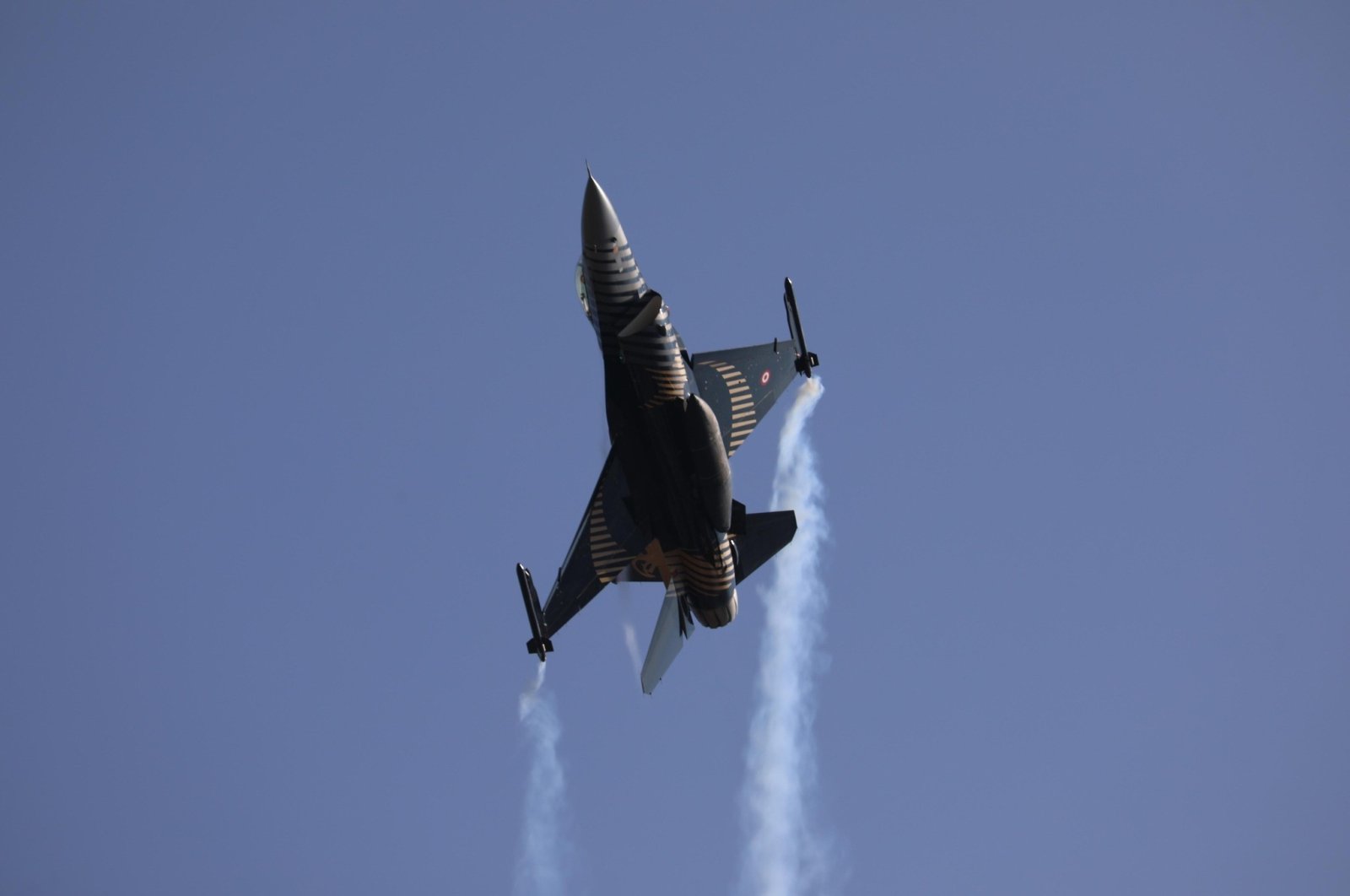
The U.S. Senate on Thursday soundly defeated an effort to block the sale of F-16 fighter jets to Türkiye, which the Biden administration approved after Ankara ratified Sweden's joining the NATO alliance.
The Senate voted 79 to 13 against a resolution of disapproval of the sale introduced by Republican Sen. Rand Paul.
Earlier in the day, Türkiye said the U.S. had sent draft letters of offer and acceptance regarding its request to buy F-16 fighter jets and modernization kits.
Before the vote, Paul criticized Türkiye's government and said allowing the sale would, what he called, embolden its "misbehavior."
Backers of the sale said it was important for Washington to keep its word to a NATO ally.
The Biden administration formally informed Congress on Jan. 26 of its intention to proceed with the $23 billion sale of 40 Lockheed Martin F-16s and nearly 80 modernization kits to Türkiye, a day after Ankara fully completed ratification of the NATO membership of Sweden.
The prolonged process that tested Washington's ties with Ankara was considered final earlier this month when Congress did not block the sale within 15 days.
"Our ministry has received the draft letters of offer and acceptance sent by the U.S. for the sale of 40 new Block-70 F-16s and 79 modernization kits and ammunition and equipment for them. (We) have started the necessary examination and evaluation," Turkish Defense Ministry spokesperson Rear Adm. Zeki Aktürk told reporters.
After Türkiye's review of the draft letters, officials from the two countries are expected to meet to finalize the deal.
Türkiye is one of the largest operators of F-16 jets, with its fleet made up of more than 200 older Block 30/40/50 models.
Relations between the two NATO allies have gained significant momentum on which they can capitalize, U.S. Sen. Chris Murphy said last week after meeting with President Recep Tayyip Erdoğan and Foreign Minister Hakan Fidan.
Türkiye first asked to make the purchase in October 2021.
Türkiye earlier sought Lockheed Martin's more advanced F-35 fighter jets, but the U.S. removed it from the multinational program to buy, and help develop and build the warplane in 2019 after it acquired S-400s from Russia.
Washington argued the air missile defense systems posed a risk to the advanced fighter jet, whereas Ankara insisted they would not be integrated into NATO systems. Türkiye had ordered about 100 F-35s and its companies were building some 900 parts for the fighter jet.
The U.S. Arms Export Control Act gives Congress the right to stop a major weapons sale by passing a resolution of disapproval in both the Senate and the House of Representatives. Although the law has been in effect for half a century, no such resolution has both passed Congress and survived a presidential veto.
Sweden and Finland applied to enter NATO after Russia invaded Ukraine in February 2022. While Finnish membership was sealed last year, Sweden's bid had been held up by Türkiye and Hungary.
All NATO members need to approve applications from countries seeking to join the alliance.
Hungary's Parliament approved Sweden's accession this week, clearing the last hurdle before the historic step by the Nordic country whose neutrality lasted through two world wars and the simmering conflict of the Cold War.
The prolonged process over F-16s led Türkiye to begin discussions to buy Eurofighter Typhoon jets.
Türkiye announced in November it was in talks with Britain and Spain to buy 40 Eurofighter jets, though Germany has objected to the idea. Ankara has been urging Germany to align with the NATO spirit.
Despite the fact that the U.S. has proceeded with the F-16 sale, Ankara maintains its interest in buying the warplanes built by a consortium of Germany, Britain, Italy and Spain, represented by Airbus, BAE Systems and Leonardo, a Turkish Defense Ministry official said earlier this month.
Keen to upgrade its air force, Türkiye is also developing its own, fifth-generation national combat aircraft, named KAAN, which performed its maiden flight last month.
